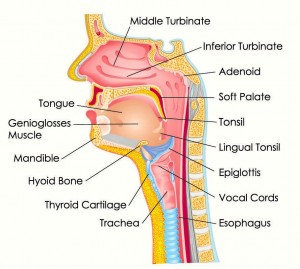How to Choose an ENT Over a General Practitioner for Recurring Issues
How to Choose an ENT Over a General Practitioner for Recurring Issues
Blog Article
Checking out the Area of Otolaryngology: What to Anticipate When You Seek Advice From an ENT
Otolaryngology, generally referred to as ENT, incorporates the diagnosis and treatment of throat, nose, and ear conditions. For those experiencing relevant concerns, speaking with an ENT specialist can provide quality and relief. Understanding what to expect throughout such appointments is vital for efficient communication and care. This review will detail crucial elements of the ENT experience, including common factors for check outs and the procedures involved in diagnosis and treatment.

Understanding Otolaryngology: An Introduction
Otolaryngology, often described as ENT (Nose, throat, and ear) medication, is a customized branch of medication that focuses on the medical diagnosis and treatment of problems influencing these essential locations of the body. This field encompasses a variety of disorders, including those related to hearing, balance, respiratory system function, and speech. Otolaryngologists are educated to handle both clinical and medical therapies, using innovative methods and innovations. Their know-how prolongs beyond typical conditions, attending to issues such as allergies, sinus infections, and hearing loss. Additionally, they play a critical role in the management of head and neck cancers, providing detailed care tailored to specific patient needs. Generally, otolaryngology stays crucial for maintaining wellness and lifestyle in afflicted people.
Common Factors to See an ENT Professional
Numerous individuals look for the proficiency of an ENT expert for a variety of reasons, reflecting the diverse nature of conditions that affect the nose, throat, and ear. Typical issues consist of persistent sinusitis, which frequently brings about persistent nasal blockage and face discomfort. Allergies and their connected symptoms, such as itching and sneezing, also trigger visits to these professionals (Sinus). Hearing loss, whether sudden or steady, is another considerable factor for assessment. Additionally, people might look for assessment for throat conditions, including persistent hoarseness or swallowing troubles. Rest apnea, defined by interrupted breathing throughout rest, is often resolved by ENT experts. Each of these conditions highlights the significance of specialized care in taking care of intricate ENT-related health problems
Getting ready for Your ENT Visit
When planning for an ENT appointment, it is important to gather appropriate information and take into consideration any type of particular worries. Patients must put together an in-depth case history, consisting of previous ear, nose, or throat concerns, surgeries, and present medications. Documenting signs-- such as intensity, frequency, and duration-- can offer valuable understandings for the ENT expert. In addition, people ought to prepare a checklist of inquiries they wish to ask, making sure that all problems are resolved during the go to. Bringing along any relevant medical documents or test results can even more aid the ENT in understanding the individual's condition. Finally, clients should confirm their appointment information, including date, location, and time, to reduce any type of last-minute complication. Correct preparation can enhance the performance of the assessment and result in far better results.
What to Anticipate Throughout the Examination
As the examination begins, the person can anticipate to engage in a comprehensive discussion with the ENT professional about their signs and case history. The expert will ask about the period, frequency, and intensity of signs such as hearing loss, nasal blockage, or sore throat. Furthermore, the individual's previous medical problems, medications, and any pertinent family background will certainly be evaluated, aiding the expert in forming a full understanding of the person's wellness. The ENT might additionally ask concerning lifestyle aspects, such as direct exposure to irritants or irritants. This open dialogue develops a foundation for the consultation, ensuring that the get more info person's issues are resolved and setting the phase for any necessary examinations or referrals for treatment.
Diagnostic Examinations and Treatments in Otolaryngology
A series of analysis examinations and treatments are crucial in otolaryngology to properly assess and detect conditions impacting the ear, nose, and throat. Usual examinations include audiometry, which determines hearing function, and tympanometry, assessing middle ear pressure. Nasal endoscopy allows visualization of the nasal passages and sinuses, while laryngoscopy takes a look at the throat and singing cables. Imaging techniques, such as CT scans and MRIs, provide thorough sights of head and neck structures. Allergy testing may also be carried out to identify triggers for sinus or respiratory system problems. These analysis devices make it possible for ENT specialists to establish a thorough understanding of clients' conditions, guaranteeing customized and efficient administration plans. Correct diagnosis is important for effective treatment end results in otolaryngology.
Treatment Options Used by ENT Specialists
ENT experts offer a selection of therapy options customized to address certain conditions affecting the nose, throat, and ear. These therapies vary from conservative approaches, such as drug and way of life adjustments, to even more intrusive treatments. Allergies might be managed with antihistamines or immunotherapy, while persistent sinusitis may call for nasal corticosteroids or sinus surgical procedure. For hearing loss, ENT specialists frequently advise hearing help or surgical interventions like cochlear implants. In cases of throat problems, choices can include speech therapy or surgeries to get rid of blockages. Furthermore, they might offer support for taking care of sleep apnea, including using CPAP devices or medical interventions. Overall, the goal is to boost patients' lifestyle through customized care and reliable treatment methods.
When to Look For Follow-Up Treatment With an ENT
Recognizing when to look for follow-up care with an ENT professional is essential for managing ongoing signs or complications connected to ear, throat, and nose problems. People must think about setting up a follow-up visit if signs persist despite first therapy, such as persistent ear pain, nasal blockage, or throat discomfort. Changes in hearing, equilibrium problems, or unusual nasal discharge may additionally require more analysis. In addition, if a client experiences negative effects from recommended drugs or has actually undertaken a surgery, follow-up treatment is essential to keep an eye on recuperation and deal with any concerns. Timely consultations can assure effective administration of conditions, avoid possible problems, and offer assurance relating to one's health and wellness. Seeking follow-up treatment advertises aggressive health and wellness monitoring in otolaryngology.
Frequently Asked Concerns

What Qualifications Should I Try to find in an ENT Professional?
When looking for an ENT professional, one ought to search for board accreditation, relevant experience, and solid patient testimonials. In addition, efficient interaction abilities and a thoughtful approach can substantially improve the overall therapy experience.
Just how Do I Select the Right ENT for My Needs?
Selecting the appropriate ENT professional entails evaluating their qualifications, experience, and individual evaluations (ENT surgery). It is important to ponder their interaction style and technique to treatment, guaranteeing they line up with the person's details wellness requirements and choices
Are There Any Kind Of Dangers Connected With ENT Procedures?
The dangers related to ENT treatments might consist of infection, blood loss, anesthetic difficulties, and possible damage to surrounding frameworks. People ought to discuss these risks with their medical professional to comprehend specific worries and assurance notified decisions.
Exactly How Can I Handle Anxiety Before My ENT Consultation?
To take care of stress and anxiety before a consultation, individuals can practice deep breathing workouts, picture positive outcomes, prepare questions beforehand, and seek assistance from close friends or family members, promoting a feeling of confidence and calmness.
What Should I Do if I Experience Negative Effects From Therapy?
If adverse effects from treatment take place, the individual needs to quickly report them to their doctor. Adjustments to treatment or additional treatments may be needed to assure safety and effectiveness in handling their problem - Voice. As the consultation begins, the individual can anticipate to involve in an extensive conversation with the ENT professional about their symptoms and medical history. These analysis devices make it possible for ENT experts to establish a complete understanding of people' conditions, making certain tailored and efficient administration plans. ENT professionals offer a range of therapy options tailored to attend to details conditions affecting the throat, nose, and ear. When looking for an ENT expert, one ought to look for board accreditation, appropriate experience, and strong individual testimonials. Choosing the appropriate ENT professional entails reviewing their qualifications, experience, and patient testimonials
Report this page